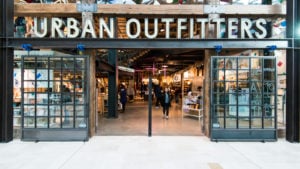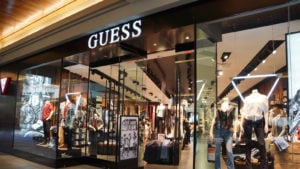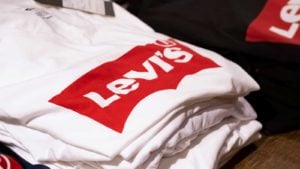Oftentimes, cheap stocks are cheap for a reason. The company’s underlying fundamentals and growth prospects have become weak, and the discounted valuation on the stock appropriately reflects that reality.
Other times, though, cheap stocks are great buys.
In such instances, the market thinks the company’s fundamentals and growth prospects are weak, but they actually aren’t. And as the fundamentals and growth prospects at the company materially improve, these cheap stocks stop being so cheap.
That is, they rally, in a big way.
With that in mind, here are 7 cheap stocks you should consider snapping up before the market catches on:
- CVS (NYSE:CVS)
- Urban Outfitters (NASDAQ:URBN)
- Blue Apron (NYSE:APRN)
- Guess (NYSE:GES)
- Levi (NYSE:LEVI)
- Groupon (NASDAQ:GRPN)
- Under Armour (NYSE:UAA)
Buy today for big profits tomorrow.
Cheap Stocks to Snap Up: CVS (CVS)
Trailing Sales Multiple: 0.3 (all multiple data fetched from Morningstar)
Ostensibly, the dirt cheap and steeply discounted valuation on CVS stock — 0.3-times trailing sales, versus a five-year-average sales multiple of 0.5 — makes sense.
In-store traffic volumes plunged in Q2 amid the Covid-19 pandemic. So did consumer spending. And both remain at depressed levels today. Against that backdrop, it’s tough to imagine CVS’ retail pharmacy business doing very well.
But CVS is actually doing pretty well. Second quarter revenues rose 3% year-over-year, while adjusted operating profits rose 32%.
Why? Because although consumer spending has broadly fallen, consumer spending on essential household items and medicines has stayed about the same, so consumer spending at places like CVS is actually up.
This trend is only going to grow more favorable over the coming months, as we head into the first flu season post-Covid-19 — a season in which we are bound to see an unprecedented surge in flu vaccines and flu/cold medicine bulk-buying.
A lot of that spending will happen at CVS. The company’s growth rates will meaningfully accelerate in the back half of this year. And that meaningful acceleration will converge on today’s discounted valuation to spark huge gains in CVS stock over the next few months.
Urban Outfitters (URBN)

Trailing Sales Multiple: 0.5
Much like CVS stock, Urban Outfitters stock seems cheap today — 0.5-times trailing sales, versus a five-year-average trailing sales multiple of 0.9 — for a good reason.
Amid Covid-19, consumers aren’t spending that much money on clothes. Urban’s sales in February, March and April dropped 32% year-over-year. URBN stock has tanked, and shares now trade at their cheapest valuation ever.
But the pandemic won’t last forever. And we’ve already seen consumer spending rebound in May (+17%) and June (+6%). Plus the labor market is recovering and consumer mobility is picking up.
All of those trends imply that consumer spending on clothes is already and will continue to recover meaningfully over the next several months. As it does, Urban Outfitters — thanks to its trendy Bohemian lifestyle apparel, one of the coolest brands among young consumers — will see its sales trajectory significantly recover, back to pre-Covid levels.
As that happens, this dirt cheap stock will rebound in a big way.
Blue Apron (APRN)

Trailing Sales Multiple: 0.3
At just 0.3-times a majorly-depressed trailing sales base, the valuation on Blue Apron stock doesn’t demand much.
And that’s with good reason. For several years, Blue Apron has been little more than a struggling player in the niche meal kits market, with a shrinking customer base, declining revenue, eroding margins and huge cash burn.
But Covid-19 changed Blue Apron’s growth prospects.
In shutting restaurants and making grocery stores “scary” for some, the pandemic thrust meal kits back into the spotlight. Blue Apron’s growth trajectory has since reversed course. In 2020, customers are up, revenues are up, margins are up and cash burn has narrowed.
The market is questioning the sustainability of these improvements, hence the continued cheap valuation on APRN stock.
But I think these improvements will persist. Mostly because Blue Apron is now getting the right product, in front of the right customer, without having to spend an arm and a leg on marketing — a combination which implies reduced churn, increased stickiness, stable revenues and rising margins.
If all that happens, then discounted APRN stock will rebound in a big way over the next few quarters.
Guess (GES)

Trailing Sales Multiple: 0.3
The bear thesis on beaten-up Guess stock is pretty straightforward. Consumers aren’t going out. So they aren’t buying clothes. And they especially aren’t buying fashion-forward Guess clothes.
So Guess’ revenues, margins and profits will materially decline for the foreseeable future. Leading to sustained weakness in GES stock. Makes a ton of sense, right?
In the near-term, yes. But in the long-term, not at all.
Zooming out, the pandemic won’t last forever. Consumer spending on apparel will eventually recover. Especially in international markets, where the virus is more under control (and Guess has a huge international presence). Plus, another round of stimulus checks in August could help apparel spending trends.
Net net, then, the outlook really isn’t all that bleak for Guess. And things will almost assuredly get better from here.
As they do, GES stock will shed its steeply discounted 0.3-times trailing sales multiple in favor of something closer to the historically normal 0.6-times multiple. That broadly means that GES stock could essentially double from here.
Levi (LEVI)

Trailing Sales Multiple: 1.0
When it comes to the take on Levi stock, it almost mirrors the bull thesis on Guess.
In a nutshell, Levi stock is being priced today for consumer spending on blue jeans to remain depressed forever. But it simply won’t. Spending will rebound over the next few months, thanks to favorable Covid-19 vaccine news flow, stimulus checks and increased innovation from Levi to reach customers through different distanced distribution channels amid these tough times.
As it does rebound, Levi’s sales trends will rebound, too. LEVI stock isn’t priced for that yet. So, when it does happen, LEVI stock could pop in a big way.
Given the overwhelming simplicity of this bull thesis, it’s no wonder former L.L. Bean CEO and current Levi Strauss Board Member Christopher McCormick bought roughly 3,800 shares of LEVI stock in late July.
I say follow the insider here. Buy LEVI stock, hold for the next 6 to 12 months and sell after the big recovery rally.
Groupon (GRPN)

Trailing Sales Multiple: 0.3
As the online daily deals category went bust over the past few years, Groupon has gone from hero to zero on Wall Street.
But GRPN stock just surged more than 50% after the company announced much better-than-expected second quarter earnings.
What was so special about those numbers? They broadly imply that Groupon is finally getting its act together, and that the company could be on the cusp of a huge fundamental rebound.
That is, management is finally taking steps to fix Groupon’s inventory and usability issues by: 1) creating self-service tools for brands to create, manage and scale offerings; 2) launching new products (Offers and Market Rates) outside of the company’s core deep discounts; and 3) leveraging data and machine learning to roll out, on the consumer side, CX improvements like map-based search, deal curation and service personalization.
At the same time, management is focusing this new-and-improved business model on the under-penetrated yet huge local services market, while also entirely gutting the expense model by ~30%.
In sum, these bold and aggressive actions give Groupon an opportunity to return to growth and improve its profitability profile.
And when that does come to pass, GRPN stock will soar.
Under Armour (UAA)

Trailing Sales Multiple: 1.0
Last but not least on this list of cheap stocks to snap up is Under Armour.
Under Armour has been the eyesore of the athletic apparel space for several years, posting sluggish growth on anemic margins while competing brands like Nike (NYSE:NKE), Lululemon (NASDAQ:LULU) and Adidas (OTCMKTS:ADDYY) have been firing on all cylinders.
This fundamental under-performance is reflected in the stock valuation. UAA stock presently trades at just 1.0-times trailing sales. The stock’s five-year-average trailing sales multiple is 2.4.
But this fundamental under-performance may end soon.
Under Armour management is finally fixing the company’s branding problem. That is, they are taking aggressive steps to cut back on UA product sale through off-price channels, and move into a more fleshed out direct channel. These moves should dramatically boost brand equity and the customer experience, leading to increased product demand, higher sales and better margins.
Plus, NBA star Joel Embiid is set to launch his first signature shoe in September, while Under Armour’s biggest athlete — former NBA MVP Steph Curry — will likely launch his own “Curry” brand soon (something like the Jordan brand for Nike).
All of these catalysts will inevitably converge on a hugely discounted valuation on UAA stock to spark meaningful out-performance in the stock over the next 6 to 12 months.
Luke Lango is a Markets Analyst for InvestorPlace. He has been professionally analyzing stocks for several years, previously working at various hedge funds and currently running his own investment fund in San Diego. A Caltech graduate, Luke has consistently been recognized as one of the best stock pickers in the world by various other analysts and platforms, and has developed a reputation for leveraging his technology background to identify growth stocks that deliver outstanding returns. Luke is also the founder of Fantastic, a social discovery company backed by an LA-based internet venture firm. As of this writing, Luke Lango was long UAA.
